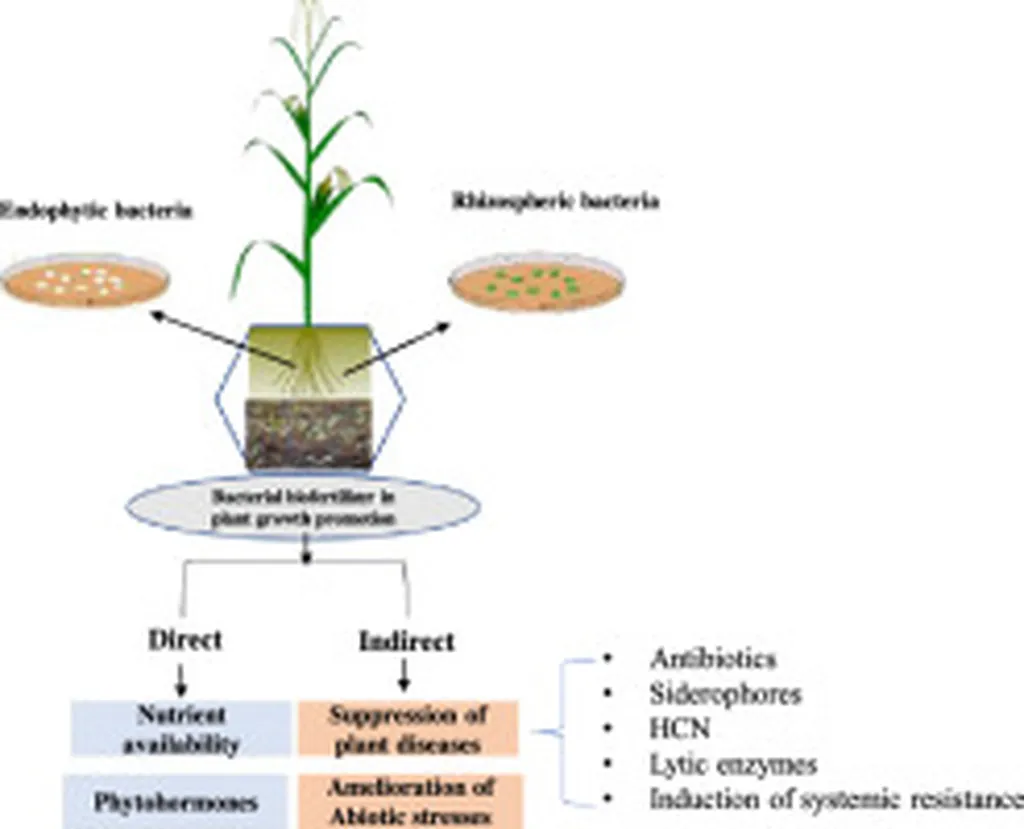In the quest for sustainable agriculture, researchers have long sought alternatives to chemical fertilizers that can boost crop yields without harming the environment. A recent study published in *Scientific Reports* offers promising insights into the use of biofertilizers for mung bean cultivation, potentially reshaping farming practices and reducing reliance on synthetic inputs.
The study, led by Afsaneh Yousefi of the Institute of Crop Science at the University of Hohenheim, investigated the effects of various fertilizers, including biofertilizers and chemical nitrogen, on mung bean productivity, root morphology, and nutrient dynamics. Conducted over two years in Mashhad, Iran, the research compared the performance of two mung bean genotypes—Partow and IC418452—under different fertilizer treatments.
The findings revealed that while urea, a common chemical fertilizer, yielded the highest biomass and grain production, particularly in the Partow genotype, a consortium of nitrogen-fixing, phosphorus-solubilizing, and potassium-solubilizing bacteria also showed significant promise. This microbial consortium not only enhanced yield components but also maximized root nodulation and inoculation percentage, indicating a boost in biological nitrogen fixation.
“Our results demonstrate that the microbial consortium can be a viable and sustainable alternative to chemical fertilizers,” Yousefi explained. “It not only improves yield but also promotes biological nitrogen fixation, which is crucial for reducing dependence on synthetic nitrogen inputs.”
The study found that urea increased grain yield by 46% and biomass by 41% compared to the control, while the microbial consortium enhanced root nodulation by 62% and yield by 32%. These findings highlight the potential of multi-strain biofertilizers to maintain productivity while minimizing environmental impact.
The commercial implications of this research are substantial. As the agricultural sector faces increasing pressure to adopt sustainable practices, the use of biofertilizers could offer farmers a cost-effective and eco-friendly solution. By reducing the need for chemical fertilizers, biofertilizers can lower production costs and mitigate environmental concerns such as soil degradation and water pollution.
Moreover, the study’s emphasis on genotype-specific responses suggests that tailored biofertilizer applications could further optimize crop yields. This personalized approach could revolutionize farming practices, allowing farmers to select the most effective biofertilizers for their specific crop varieties and soil conditions.
The research also underscores the importance of understanding the relationships between root morphology, nutrient utilization, and yield. By delving into these intricate interactions, scientists can develop more targeted and effective agricultural strategies that promote sustainable, high-yield cultivation.
As the agricultural industry continues to evolve, the findings from this study could pave the way for innovative farming techniques that balance productivity with environmental stewardship. By embracing biofertilizers, farmers can not only enhance their crop yields but also contribute to a more sustainable and resilient agricultural future.
The study, published in *Scientific Reports* and led by Afsaneh Yousefi of the Institute of Crop Science at the University of Hohenheim, offers a glimpse into the potential of biofertilizers to transform the agricultural landscape. As researchers continue to explore these alternatives, the future of farming looks increasingly promising, with sustainability and productivity going hand in hand.

